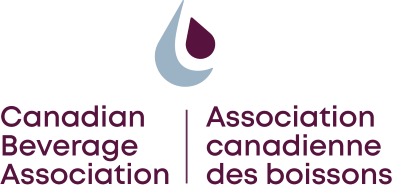TORONTO, Oct. 6, 2017 /CNW/ - In response to Chef Jamie Oliver's comments on Canada's beverage industry, the Canadian Beverage Association issued the following statement:
The Canadian Beverage industry is proud of the work we do as an industry to inform Canadians about the products they are consuming. Mr. Oliver's comments and claims on age restrictions for energy drinks are unnecessary and based on neither sound research nor scientific evidence.
CBA members adhere to the strict regulations set out by Health Canada on the products they produce, including energy drinks. By law in Canada, energy drinks must be clearly labelled that they are not recommended for children. In addition, energy drinks must adhere to caffeine limits imposed by Health Canada, which limits both the caffeine concentration and the maximum total amount of caffeine in energy drinks. The maximum caffeine concentration is 100 mg/ 250 ml, and the maximum total amount of caffeine is 180 mg per container. Energy drink labels must also have a high caffeine content statement on the label and display all ingredients.1 Energy drink labels in Canada already contain information to help consumers make an informed decision and meet or exceed all applicable regulatory requirements.
In addition, Health Canada's own 2013 risk assessment concluded that for adults, "a typical energy drink per day would not be expected to pose a health risk for the general adult population." For teens 12 – 18 years of age, the assessment also concluded that the caffeine content of 250-500 ml of a typical energy drink "would be unlikely to pose an acute health hazard."2
As an industry, we rely on sound research and evidence to guide our initiatives, including: the Health Canada 2013 Risk Assessment3; and recent 2015 European Food Safety Authority scientific opinion on the safety of caffeine, which concluded that caffeine at the levels found in energy drinks was safe to consume4.
Energy Drink Industry Commitments
In addition to abiding by strict food laws, the industry adheres to the following voluntary guidelines as part of the Energy Drink Industry Commitments:
- Energy Drinks are not made available in primary or secondary schools;
- Marketing and advertising activities of energy drinks are not directed at children;
- No promotional activities are undertaken to encourage excessive consumption of energy drinks;
- Labels of energy drinks do not promote the mixing of energy drinks with any other beverage.
More information about energy drinks, including who energy drinks are suitable for, is available at www.energydrinksinformation.com
The Canadian Beverage Association is the national trade association representing the broad spectrum of companies that manufacture and distribute the majority of non-alcoholic refreshment beverages consumed in Canada. For more information, visit: balancecalories.ca and canadianbeverage.ca
______________________________
1 Health Canada, Food and Nutrition Guidelines: https://www.canada.ca/en/health-canada/services/food-nutrition/legislation-guidelines/guidance-documents/category-specific-guidance-temporary-marketing-authorization-caffeinated-energy-drinks.html
2 Energy Drinks: An Assessment of the Potential Health Risks in the Canadian Context, Joel Rotstein, Jennifer Barber, Carl Strowbridge, Stephen Hayward, Rong Huang and Samuel Benrejeb Godefroy: http://cdn.intechopen.com/pdfs/45380/InTech-Energy_drinks_an_assessment_of_the_potential_health_risks_in_the_canadian_context.pdf
3 Ibid.
4 European Food Safety Authority, Scientific opinion on the safety of caffeine, 2015 https://www.efsa.europa.eu/en/efsajournal/pub/4102
SOURCE Canadian Beverage Association

please contact Jeff Rutledge, 416-362-2424, [email protected]

Share this article